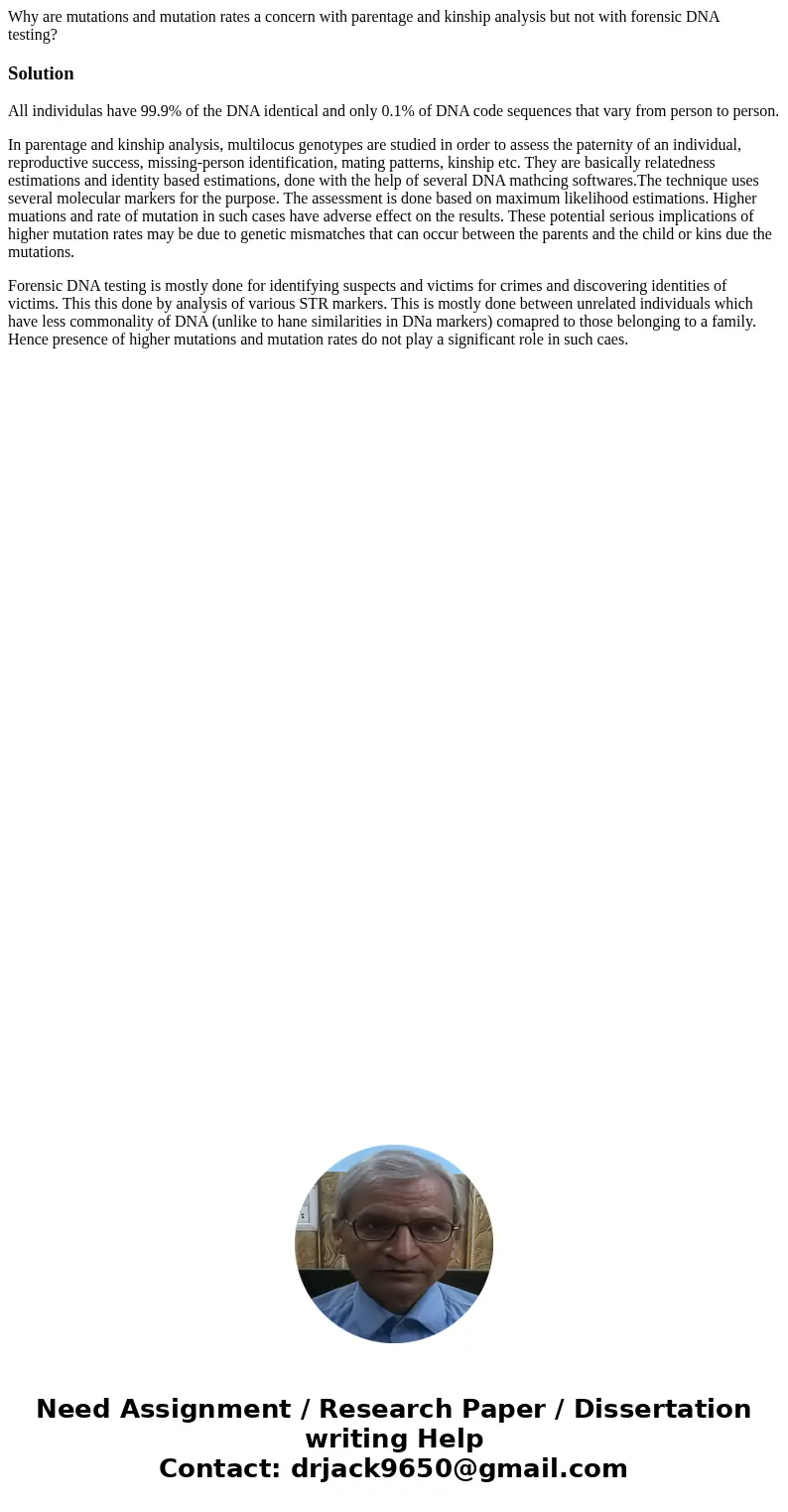Why are mutations and mutation rates a concern with parentag
Why are mutations and mutation rates a concern with parentage and kinship analysis but not with forensic DNA testing?
Solution
All individulas have 99.9% of the DNA identical and only 0.1% of DNA code sequences that vary from person to person.
In parentage and kinship analysis, multilocus genotypes are studied in order to assess the paternity of an individual, reproductive success, missing-person identification, mating patterns, kinship etc. They are basically relatedness estimations and identity based estimations, done with the help of several DNA mathcing softwares.The technique uses several molecular markers for the purpose. The assessment is done based on maximum likelihood estimations. Higher muations and rate of mutation in such cases have adverse effect on the results. These potential serious implications of higher mutation rates may be due to genetic mismatches that can occur between the parents and the child or kins due the mutations.
Forensic DNA testing is mostly done for identifying suspects and victims for crimes and discovering identities of victims. This this done by analysis of various STR markers. This is mostly done between unrelated individuals which have less commonality of DNA (unlike to hane similarities in DNa markers) comapred to those belonging to a family. Hence presence of higher mutations and mutation rates do not play a significant role in such caes.

 Homework Sourse
Homework Sourse